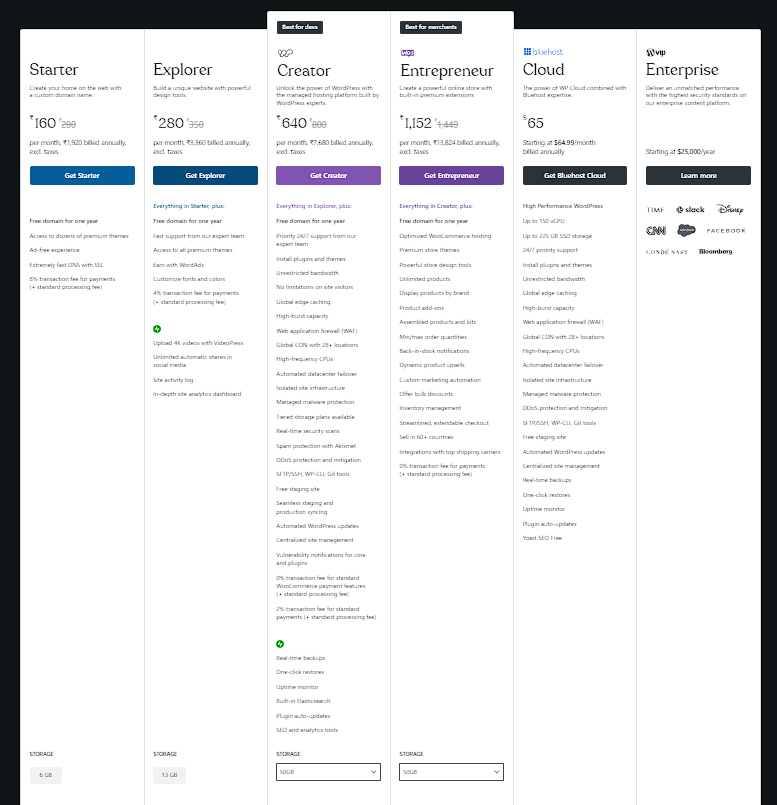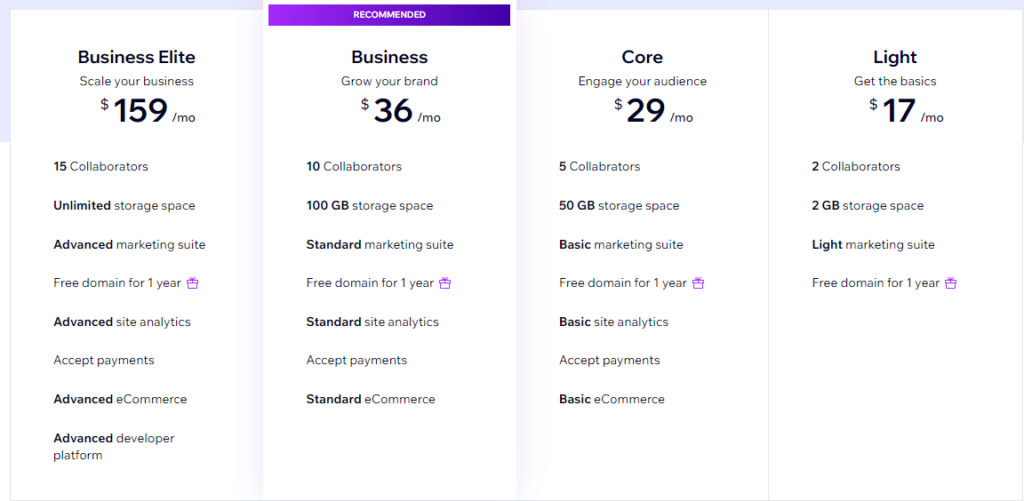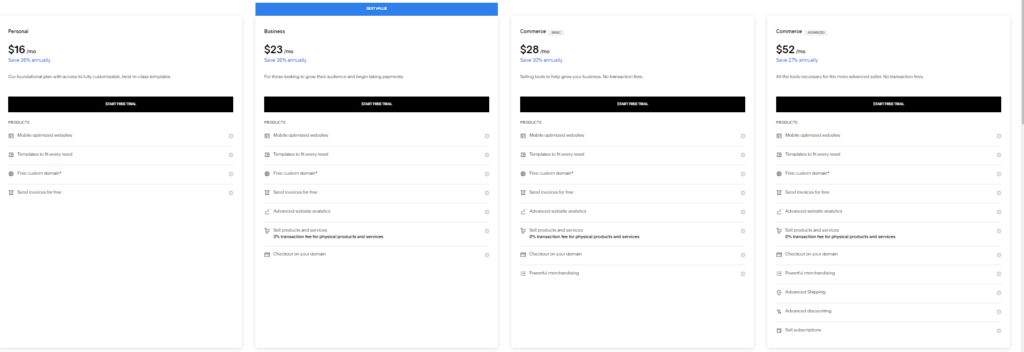This Article has been revised, edited and added to, by Poulomi Chakraborty.
- Features and Functionalities
- Best CMS Platforms for SEO-Friendly Travel Websites
- WordPress: A Versatile Foundation for SEO
- Features
- Pricing
- Pros and Cons
- Ideal User Base
- Strategic Advice for Startup Founders
- Joomla: Offering Advanced Control and Flexibility
- Features
- Pricing
- Pros and Cons
- Ideal User Base
- Strategic Advice for Startup Founders
- Drupal: The Platform for Scalability and Security
- Features
- Pricing
- Pros and Cons
- Ideal User Base
- Strategic Advice for Startup Founders
- Wix: Streamlining SEO for Travel Entrepreneurs
- Features
- Pricing
- Pros and Cons
- Ideal User Base
- Strategic Advice for Startup Founders
- Squarespace: Balancing Aesthetics with SEO Capabilities
- Features
- Pricing
- Pros and Cons
- Ideal User Base
- Strategic Advice for Startup Founders
- Crafting the Ideal SEO-Friendly Travel Website
- Conclusion
In the ever-evolving digital landscape, establishing a robust online presence has become imperative for travel businesses across the globe. The cornerstone of this digital presence is an SEO-friendly website that not only attracts a plethora of visitors but engages them with rich, vibrant content, nurturing a path that leads them from curiosity to the booking confirmation page.
Central to crafting such a dynamic digital presence is the choice of the Content Management System (CMS). A well-chosen CMS doesn’t just facilitate ease of use; it harbors a rich ecology of features that can aid in catapulting your website to the apex of search engine rankings, nurturing a landscape that promises vibrant user engagement and a sustained flow of traffic.
As we venture forth in this rich narrative, we shall traverse through various dimensions of the CMS landscape, unveiling platforms that stand as the epitome of SEO-friendly functionalities, promising not just a website, but a vibrant ecosystem that resonates with growth and opportunities. Our journey will include an in-depth exploration of the following landscapes:
- Features and Functionalities: Unveiling the vital functionalities that a CMS should harbor to nurture SEO-friendly dynamics.
- Best CMS Platforms: A vibrant exploration of the market leaders in the CMS landscape, promising a deep dive into their SEO-friendly functionalities.
Features and Functionalities

In the digital era, where the competition for visibility is fierce, especially for travel websites, selecting a Content Management System (CMS) with the right features and functionalities is more crucial than ever.
SEO Optimization Tools
A CMS endowed with built-in SEO optimization tools stands pivotal in guiding your website to the zenith of search engine rankings. Let us explore this dynamic landscape, promising a rich array of tools such as:
- Meta Tags: Dive into the world of meta tags, understanding the nuances of crafting compelling and SEO-friendly meta titles and descriptions.
- SEO Plugins: Unveil the rich repository of SEO plugins, offering functionalities that promise to guide your website through a landscape rich with SEO benefits.
Responsive Design
In a world where mobile devices steer the helm of digital explorations, ensuring a responsive design stands as a vital component.
- Fluid Grids: Venture into the dynamics of fluid grids, promising a design approach that adapts seamlessly to varying screen sizes.
- Media Queries: Explore the world of media queries, offering a pathway to crafting designs that resonate with varying device characteristics.
High-Performance Metrics
Understanding the pivotal role of high-performance metrics stands as a vital chapter in our exploration, promising insights into:
- Loading Speed: Delve into strategies promising reduced loading time, a critical factor in lowering bounce rates and nurturing user engagement.
- Server Response Time: Venture into understanding the nuances of server response time, unveiling strategies to enhance website performance.
Content Optimization
A dynamic content landscape stands as a vital component in nurturing an SEO-friendly website, offering insights into:
- Content Structuring: Learn the art of structuring content in a manner that resonates with SEO dynamics, promising a pathway to higher rankings.
- Multimedia Optimization: Delve into the world of multimedia optimization, understanding the nuances of leveraging visuals to enhance user engagement and SEO dynamics.
Integrating Structured Data for Enhanced Visibility
Structured data plays a pivotal role in how search engines interpret and display your content. An SEO-friendly CMS should facilitate the easy integration of structured data, allowing your travel website to communicate more effectively with search engines. This includes marking up content with schema.org vocabulary to enhance the way your pages appear in search results, potentially increasing click-through rates with rich snippets that feature reviews, ratings, and prices.
Crafting Rich Snippets for Competitive Advantage
Utilizing your CMS to craft rich snippets goes beyond basic SEO tactics, offering a competitive edge in search engine results pages (SERPs). These snippets can include valuable information for potential travelers, such as star ratings, reviewer information, and price ranges, making your listings stand out and providing a clear, compelling reason for users to choose your site over a competitor’s.
Leveraging CMS for Local SEO Optimization
For travel websites, local SEO cannot be overstated. A CMS that supports local SEO features, such as easy integration with Google My Business and the ability to add location-based metadata, can significantly improve visibility in local search queries. This is especially important for travel businesses targeting customers in specific geographic locations or promoting local attractions.
Enhancing Local Visibility with Geotargeted Content
Creating geotargeted content through your CMS can dramatically increase your relevance in local search results. This involves tailoring content and offers to specific locations, which not only improves SEO but also enhances the user experience for visitors by providing them with information and deals that are more relevant to their interests and current location.
Optimizing Site Speed for Improved User Experience
Site speed is a critical SEO factor, influencing both search rankings and user experience. A CMS that provides tools for optimizing website speed, such as image compression, efficient code, and fast-loading templates, is essential. Faster loading times reduce bounce rates and encourage users to spend more time on your site, both of which signal to search engines that your site provides value to visitors.
Implementing AMP for Mobile Optimization
With the increasing dominance of mobile search, implementing Accelerated Mobile Pages (AMP) can further enhance your SEO strategy. A CMS that supports AMP allows you to create lightweight versions of your web pages, ensuring they load instantly on mobile devices. This not only improves user experience but also positively impacts mobile search rankings.
Embracing AI and Machine Learning for SEO
The future of SEO lies in leveraging artificial intelligence (AI) and machine learning. An advanced CMS should offer features that utilize these technologies to analyze user behavior, optimize content delivery, and predict trends. This can include AI-driven content recommendations, automated tagging and categorization of content, and predictive analysis of SEO strategies that are likely to yield the best results.
Predictive SEO Analysis
By harnessing the power of AI for predictive SEO analysis, travel websites can stay ahead of the curve, identifying emerging search trends and adjusting strategies accordingly. This proactive approach ensures that your content remains relevant and visible, even as market dynamics and search algorithms evolve.
The journey to elevating your travel website’s SEO through the choice of CMS is marked by a strategic approach to leveraging advanced features and functionalities. From structured data and local SEO optimization to site speed improvements and the innovative use of AI, the right CMS can transform your website into a powerful, search-optimized platform. By focusing on these advanced strategies, travel startups can significantly enhance their online visibility, user engagement, and ultimately, their booking conversion rates.
Best CMS Platforms for SEO-Friendly Travel Websites

In the pursuit of establishing a commanding online presence for your travel website, choosing the right Content Management System (CMS) is a strategic decision that can significantly influence your SEO success and user engagement. Beyond the basic functionalities, a CMS tailored for the unique needs of travel websites can offer specialized features that elevate your content and enhance your online visibility. This exploration into the best CMS platforms for SEO-friendly travel websites is designed to guide you in making an informed decision that aligns with your digital marketing goals.
WordPress: A Versatile Foundation for SEO

WordPress has established itself as one of the most popular Content Management Systems (CMS) globally, powering over 40% of all websites on the internet. Its versatility, extensive plugin ecosystem, and user-friendly interface make it a top choice for travel websites aiming to optimize their SEO strategy. For startup founders, WordPress offers a robust platform that balances ease of use with powerful SEO capabilities, providing a strong foundation for digital growth.
Features
WordPress excels in providing a comprehensive suite of features that cater to both beginners and advanced users. One of its standout attributes is the extensive library of plugins, which includes powerful SEO tools like Yoast SEO and All in One SEO Pack.
These plugins offer functionalities such as on-page SEO optimization, XML sitemap generation, and social media integration, ensuring your content is easily discoverable by search engines.
Additionally, WordPress supports responsive design out of the box, ensuring your travel website looks and performs well on any device. The platform’s customizable themes allow you to create a visually appealing site that reflects your brand’s identity while adhering to SEO best practices.
WordPress also provides built-in support for multimedia content, enabling you to enhance user engagement with high-quality images, videos, and interactive elements.
Pricing
To better understand the pricing structure of WordPress, refer to the pricing page screenshot below.

Pros and Cons
WordPress offers numerous advantages, making it a preferred choice for many travel websites. Its open-source nature allows for extensive customization, giving you the freedom to tailor your site to meet specific SEO needs. The platform’s vast community provides a wealth of resources, including tutorials, forums, and plugins, ensuring you have the support needed to optimize your site effectively.
However, WordPress does have its drawbacks. While the platform itself is free, the costs associated with premium themes, plugins, and hosting can add up. Additionally, the level of customization available may require a steeper learning curve for those without technical expertise.
Regular updates and maintenance are also necessary to ensure security and optimal performance, which can be a challenge for smaller teams.
Ideal User Base
WordPress is ideal for travel startups seeking a balance between flexibility and powerful SEO features. It is particularly well-suited for businesses that anticipate scaling their content and functionality over time.
The platform’s adaptability makes it a great fit for websites that require frequent updates, such as travel blogs, booking platforms, and destination guides. Startups with a team that can manage technical aspects or those willing to invest in professional assistance will find WordPress a valuable asset in their digital strategy.
Strategic Advice for Startup Founders
To maximize the potential of WordPress for your travel website, consider these strategic tips:
- Leverage SEO Plugins: Make full use of SEO plugins like Yoast SEO to optimize your content. Focus on creating keyword-rich meta descriptions, titles, and headers that attract both search engines and users.
- Responsive Design: Ensure your website is mobile-friendly. With a significant portion of travel searches occurring on mobile devices, a responsive design is crucial for both user experience and SEO.
- Content Strategy: Develop a robust content strategy that includes regular blog posts, travel guides, and user-generated content. High-quality, relevant content will drive organic traffic and improve your search engine rankings.
- Site Speed Optimization: Utilize caching plugins, image compression tools, and efficient coding practices to enhance site speed. Faster loading times reduce bounce rates and improve user satisfaction.
- Security Measures: Regularly update your WordPress installation, themes, and plugins to protect against vulnerabilities. Implementing security plugins can help safeguard your site and maintain its integrity.
By strategically leveraging the capabilities of WordPress, travel startups can build a dynamic, SEO-friendly website that attracts and engages visitors, ultimately driving bookings and growth.
Joomla: Offering Advanced Control and Flexibility

Joomla is a powerful Content Management System (CMS) that strikes a balance between user-friendliness and advanced capabilities. Known for its flexibility and control, Joomla is a popular choice among travel websites that require more sophisticated functionalities.
For startup founders, Joomla offers a robust platform that can handle complex needs while providing ample opportunities for customization and scalability. Its open-source nature ensures continuous improvement and a wide range of extensions to enhance your site’s SEO and user experience.
Features
Joomla comes equipped with a plethora of features that make it a formidable CMS for travel websites. One of its key strengths is the native support for SEO-friendly URLs, which helps improve search engine visibility. The platform also includes built-in tools for managing meta descriptions, keywords, and page titles, essential for optimizing your content for search engines.
Another notable feature is Joomla’s multilingual support, which is integrated directly into the core system. This allows travel websites to reach a global audience without relying on third-party plugins.
Joomla also offers extensive user management capabilities, enabling you to set different access levels and permissions, which is particularly useful for collaborative content creation and management.
Joomla’s template system is highly flexible, allowing for custom layouts and designs that can be tailored to meet your brand’s aesthetic and functional requirements. The platform also supports a wide range of extensions, including those specifically designed for travel websites, such as booking systems, event management, and interactive maps.
Pricing
To better understand the pricing structure of Joomla, refer to the pricing page screenshot below.

Pros and Cons
Joomla’s flexibility and control are among its most significant advantages. The platform’s powerful core features and extensive extension library allow for deep customization, making it suitable for travel websites with complex requirements.
Joomla’s community is active and supportive, providing a wealth of resources, including forums, documentation, and tutorials.
However, Joomla’s complexity can be a double-edged sword. The platform’s advanced features may present a steep learning curve for those without technical expertise.
Additionally, while the core system is free, costs associated with premium extensions, templates, and hosting can add up. Regular maintenance and updates are necessary to ensure security and optimal performance, which can be resource-intensive for smaller teams.
Ideal User Base
Joomla is ideal for travel startups that need a flexible and scalable CMS capable of handling complex functionalities. It is particularly well-suited for businesses with diverse content types, such as travel blogs, booking platforms, and community-driven sites.
Startups with a dedicated technical team or those willing to invest in professional development services will benefit most from Joomla’s capabilities. The platform’s multilingual support makes it an excellent choice for travel websites targeting an international audience.
Strategic Advice for Startup Founders
To maximize Joomla’s potential for your travel website, consider the following strategic tips:
- Utilize SEO Extensions: Take advantage of Joomla’s SEO extensions to enhance your site’s search engine visibility. Tools like sh404SEF can help manage SEO-friendly URLs, while JSitemap offers advanced sitemap generation.
- Leverage Multilingual Capabilities: Make full use of Joomla’s built-in multilingual support to reach a broader audience. Create localized content that caters to different regions and languages, improving your site’s global appeal.
- Optimize for Performance: Ensure your website loads quickly by using performance optimization extensions like JCH Optimize and caching solutions. Faster loading times reduce bounce rates and improve user experience, positively impacting SEO.
- Engage with the Community: Join Joomla’s active community forums and attend local Joomla user groups or events. Engaging with other users can provide valuable insights, tips, and support, helping you make the most of the platform.
- Regular Maintenance: Keep your Joomla installation, extensions, and templates up to date to protect against security vulnerabilities. Implement a regular maintenance schedule to ensure your site runs smoothly and efficiently.
By strategically leveraging Joomla’s advanced features and community support, travel startups can build a powerful, SEO-friendly website that meets their unique needs and drives engagement and growth.
Drupal: The Platform for Scalability and Security

Drupal is renowned for its robust scalability and top-tier security, making it an ideal choice for travel websites that handle large volumes of content and traffic. For startup founders, Drupal offers a highly customizable platform that can grow with their business.
Its open-source nature means continuous improvements and a vast array of modules to enhance functionality. Drupal is particularly well-suited for complex sites that require a high degree of customization and advanced security measures.
Features
Drupal excels in providing a rich set of features that cater to the needs of travel websites. One of its core strengths is the advanced taxonomy system, which allows for intricate content categorization and tagging.
This is particularly useful for organizing large amounts of travel-related content, such as destination guides, travel tips, and itineraries, in a way that enhances user experience and SEO.
The platform also offers robust SEO modules, such as Pathauto for automatic URL generation and Metatag for managing meta descriptions and titles. These modules help ensure that your content is optimized for search engines, improving visibility and rankings.
Drupal’s multilingual capabilities are built into the core, enabling seamless creation of multilingual sites without the need for additional plugins.
Security is a critical feature of Drupal, with a dedicated security team that actively monitors and addresses vulnerabilities. This makes it a reliable choice for travel websites that handle sensitive user information, such as booking details and personal data. Additionally, Drupal supports responsive design out of the box, ensuring your site is mobile-friendly and performs well on all devices.
Pricing
While Drupal itself is free to use, costs can arise from web hosting, premium themes, and modules, as well as ongoing maintenance and support. Custom development and professional services can also add to the overall cost, especially for complex projects.
Managed Drupal hosting services, such as Pantheon or Acquia, provide enhanced security, performance, and support but come at a higher price.
Pros and Cons
Drupal’s scalability and security are among its most significant advantages. The platform’s modular architecture allows for extensive customization, enabling travel websites to add functionalities as needed. The active community provides a wealth of resources, including modules, themes, and support forums, helping users optimize their sites effectively.
However, Drupal’s complexity can be a challenge, especially for users without technical expertise. The steep learning curve and the need for regular maintenance and updates can be resource-intensive.
While the core system is free, the costs associated with premium modules, themes, and professional hosting services can add up. Additionally, setting up and managing a Drupal site may require professional development assistance, which can be a significant investment for startups.
Ideal User Base
Drupal is ideal for travel startups that need a scalable, secure CMS capable of handling complex functionalities and large amounts of content. It is particularly well-suited for businesses with advanced security requirements, such as those managing booking systems and user data.
Startups with a dedicated technical team or the resources to hire professional developers will benefit most from Drupal’s capabilities. The platform’s multilingual support makes it an excellent choice for travel websites targeting an international audience.
Strategic Advice for Startup Founders
To maximize Drupal’s potential for your travel website, consider the following strategic tips:
- Leverage Advanced Taxonomy: Utilize Drupal’s advanced taxonomy system to organize your content effectively. This enhances site navigation and user experience, which are crucial for SEO and user engagement.
- Implement SEO Modules: Take full advantage of Drupal’s SEO modules like Pathauto and Metatag to optimize your site for search engines. Regularly update your meta descriptions, titles, and URLs to reflect your latest content and SEO strategy.
- Prioritize Security: Ensure your site’s security by keeping your Drupal installation and modules up to date. Implement additional security measures such as two-factor authentication and regular security audits to protect user data.
- Optimize for Performance: Use performance optimization modules like Advanced CSS/JS Aggregation and caching solutions to enhance site speed. Faster loading times reduce bounce rates and improve user satisfaction, positively impacting SEO.
- Engage with the Community: Join Drupal community forums and attend local Drupal events to stay informed about the latest developments and best practices. Engaging with other users can provide valuable insights and support, helping you make the most of the platform.
By strategically leveraging Drupal’s advanced features and community resources, travel startups can build a powerful, SEO-friendly website that meets their unique needs and drives engagement and growth.
Exploiting Drupal’s Taxonomy System for Better Content Organization
Drupal’s advanced taxonomy system is particularly beneficial for travel websites, allowing for the intricate categorization of content. This system enables site owners to organize and tag content in a way that improves site navigation and user experience, thereby enhancing the site’s SEO by keeping users engaged and reducing bounce rates.
Wix: Streamlining SEO for Travel Entrepreneurs

Wix is a cloud-based website builder known for its ease of use and comprehensive set of tools designed to help entrepreneurs build professional websites with minimal effort.
For travel startups, Wix offers an intuitive platform that simplifies the process of creating an SEO-friendly site, making it accessible even for those without technical expertise.
With its drag-and-drop interface, built-in SEO tools, and a variety of customizable templates, Wix is an excellent choice for travel entrepreneurs looking to establish a strong online presence quickly and efficiently.
Features
Wix provides a wide range of features that cater specifically to the needs of travel websites. One of the standout features is the SEO Wiz, a step-by-step guide that helps users optimize their sites for search engines.
This tool offers personalized SEO plans, keyword recommendations, and tips for improving search engine rankings. Additionally, Wix supports responsive design, ensuring your website looks great on any device, which is crucial for reaching mobile users.
The platform also includes robust e-commerce capabilities, allowing travel businesses to sell products and services directly from their website. This is particularly useful for travel startups offering bookings, tours, or travel accessories.
Wix’s rich media features enable users to integrate high-quality images, videos, and virtual tours, enhancing the visual appeal of their websites and improving user engagement.
Wix’s app market provides access to a variety of third-party apps that can extend the functionality of your site. These apps include tools for social media integration, email marketing, and customer reviews, all of which can help enhance your SEO strategy and overall site performance.
Pricing
To better understand the pricing structure of Wix, refer to the pricing page screenshot below.

Pros and Cons
Wix’s simplicity and ease of use are among its most significant advantages. The platform’s drag-and-drop editor makes it easy to design and customize your website without any coding knowledge.
The SEO Wiz tool provides valuable guidance for optimizing your site, making it accessible for beginners. Additionally, Wix’s extensive template library and rich media capabilities allow for the creation of visually appealing websites that can engage and convert visitors.
However, Wix does have its limitations. While the platform offers a wide range of features, it may not be as flexible or powerful as some open-source CMS options like WordPress or Drupal.
The customization options, while extensive, are somewhat limited compared to more advanced platforms. Additionally, while Wix is suitable for small to medium-sized websites, it may not be the best choice for very large or highly complex sites.
The cost of premium plans and additional apps can also add up, potentially making it more expensive than initially anticipated.
Ideal User Base
Wix is ideal for travel startups that need a straightforward, all-in-one solution for building an SEO-friendly website. It is particularly well-suited for entrepreneurs and small businesses that want to get online quickly without investing significant time or resources in development.
The platform’s user-friendly interface and built-in tools make it an excellent choice for those with limited technical expertise. Travel businesses that rely heavily on visual content, such as travel blogs, tour operators, and travel photographers, will benefit from Wix’s rich media capabilities and visually appealing templates.
Strategic Advice for Startup Founders
To maximize the potential of Wix for your travel website, consider the following strategic tips:
- Utilize SEO Wiz: Make full use of the SEO Wiz tool to optimize your site for search engines. Follow the personalized SEO plan and implement the recommended keyword strategies to improve your search engine rankings.
- Create High-Quality Content: Focus on producing high-quality, engaging content that resonates with your audience. Use Wix’s blogging capabilities to publish regular travel guides, tips, and stories that can attract organic traffic and improve SEO.
- Optimize Visuals: Take advantage of Wix’s rich media features to incorporate high-quality images, videos, and virtual tours. Optimize these visuals for fast loading times to enhance user experience and boost SEO.
- Leverage Third-Party Apps: Explore the Wix app market to find apps that can enhance your site’s functionality and SEO. Tools for social media integration, email marketing, and customer reviews can help you build a more comprehensive online presence.
- Monitor Performance: Regularly use Wix’s analytics tools to track your site’s performance. Monitor key metrics such as traffic, engagement, and conversion rates, and use this data to refine your SEO strategy and improve site performance.
By strategically leveraging Wix’s features and tools, travel startups can create a professional, SEO-friendly website that attracts and engages visitors, ultimately driving growth and success.
Squarespace: Balancing Aesthetics with SEO Capabilities

Squarespace is acclaimed for its stunning design templates and ease of use, making it an attractive choice for travel websites that prioritize visual appeal. However, beyond its aesthetic capabilities, Squarespace also offers robust SEO features that can help travel startups improve their online visibility.
For startup founders, Squarespace provides a streamlined platform that combines design excellence with practical SEO tools, allowing them to create beautiful, high-performing websites without extensive technical knowledge.
Features
Squarespace offers a comprehensive suite of features designed to make website creation and management simple yet powerful. The platform’s drag-and-drop interface is intuitive, allowing users to build and customize their websites effortlessly.
Squarespace’s design templates are not only visually appealing but also responsive, ensuring your website looks great on all devices, which is crucial for mobile SEO.
SEO tools are integrated directly into Squarespace, simplifying the process of optimizing your site for search engines. The platform allows you to manage meta titles and descriptions, customize URLs, and utilize automatic sitemaps to improve search engine indexing.
Additionally, Squarespace supports SSL certificates, enhancing site security and boosting search rankings.
For travel websites, Squarespace’s built-in blogging capabilities are a significant advantage. Consistently publishing high-quality content can drive organic traffic and improve your site’s SEO. The platform also offers robust analytics, providing insights into website performance and visitor behavior, which can inform your SEO strategy.
Pricing
To better understand the pricing structure of Squarespace, refer to the pricing page screenshot below.

Pros and Cons
Squarespace’s primary strength lies in its balance between design and functionality. The platform’s professional, customizable templates allow travel websites to present destinations and experiences in a visually engaging manner, enhancing user engagement.
Integrated SEO tools and analytics make it easier for startups to optimize their sites and track performance without needing additional plugins.
However, Squarespace has limitations. While it offers a range of features, it may not be as flexible as open-source platforms like WordPress or Drupal. Customization options, particularly for advanced functionalities, can be restricted.
Additionally, while the platform is user-friendly, the cost can be higher compared to other CMS options, especially when considering premium plans and features.
Ideal User Base
Squarespace is ideal for travel startups that prioritize aesthetics and ease of use over extensive customization. It is particularly well-suited for businesses looking to create visually stunning websites with minimal technical effort.
Startups that benefit most from Squarespace are those focusing on content-driven strategies, such as travel blogs and destination guides, where the presentation of visuals plays a crucial role in user engagement. The platform is also a good fit for businesses that need a straightforward, all-in-one solution for web design, hosting, and SEO.
Strategic Advice for Startup Founders
To maximize the potential of Squarespace for your travel website, consider these strategic tips:
- Leverage Visual Content: Utilize Squarespace’s design capabilities to create visually compelling content that captures the essence of travel experiences. High-quality images and videos can significantly enhance user engagement and time spent on your site, which positively impacts SEO.
- Optimize On-Page SEO: Take full advantage of Squarespace’s built-in SEO tools to optimize your content. Ensure that each page has a unique meta title and description, and customize URLs to include relevant keywords.
- Regular Content Updates: Maintain a consistent blogging schedule to drive organic traffic. High-quality, relevant content not only attracts visitors but also signals to search engines that your site is active and valuable.
- Monitor Analytics: Use Squarespace’s analytics to track key performance indicators such as traffic sources, user behavior, and conversion rates. These insights can help you refine your SEO strategy and make data-driven decisions.
- Focus on Mobile Optimization: Ensure your website is fully optimized for mobile devices. With a significant portion of travel-related searches conducted on mobile, a responsive design is crucial for user experience and SEO.
By strategically leveraging Squarespace’s strengths in design and integrated SEO tools, travel startups can create an appealing and high-performing website that attracts and retains visitors, driving growth and engagement in a competitive market.
Selecting the best CMS for your travel website involves a careful assessment of your SEO needs, content strategy, and user engagement goals. Each CMS comes with its strengths, from WordPress’s versatility and rich plugin ecosystem to Drupal’s scalability and Joomla’s balance of simplicity and power. By aligning your choice with your strategic objectives, you can lay a strong foundation for an SEO-friendly website that captivates and converts your target audience in the competitive travel industry.

I own a new small startup marketing business, I have been utilizing square space for my website. I discovered they had email marketing services, and I decided to start using it so I could have a streamlined process.
The pros I have noticed while using this service are:
1. Effortless Integration: Seamlessly integrate your website and online store with Squarespace’s Email Marketing Tool. Effortlessly import your contacts and start engaging with your audience right away.
2. Professional Templates: Create eye-catching, professional-looking emails with ease using Squarespace’s customizable templates. Stand out in your audience’s inbox and leave a lasting impression.
3. Insightful Analytics: Gain valuable insights into your email campaigns with Squarespace’s analytics. Track open rates, click-through rates, and engagement to optimize your email marketing strategy.
4. Automated Campaigns: Save time and effort with Squarespace’s automated email campaigns. Set up welcome emails, abandoned cart reminders, and more to effectively nurture your leads and customers.
5. Mobile Optimization: Ensure that your emails look great on any device with Squarespace’s mobile-responsive designs. Reach your audience wherever they are, whether it’s on their desktop or mobile device.
Using the service is honestly straight forward and simple and as a squarespace user, makes all the difference as it saves me time!
Chad Newson, Owner of Newson Marketing Co
Crafting the Ideal SEO-Friendly Travel Website
In our vibrant journey exploring the rich landscape of CMS platforms, we have unveiled a rich tapestry of features, functionalities, and transformative narratives that resonate with success and growth. As we stand at the culmination of our exploration, let us weave together the golden threads of insights, crafting a guide to selecting the ideal CMS platform for nurturing SEO-friendly travel websites.
Understanding Your Requirements
As the first step in your journey, understanding your specific requirements stands pivotal. From the richness of functionalities to the specific SEO dynamics, craft a checklist that resonates with your brand’s unique identity.
Community and Support
As we have seen through our exploration, a vibrant community and a rich source of support stand as vital factors. Leverage the insights and experiences of others to foster a platform rich with knowledge and growth.
SEO-Friendly Features
In the dynamic landscape of digital explorations, SEO-friendly features stand as a beacon guiding your pathway to success. From SEO plugins to inbuilt settings, choose a platform that promises a vibrant SEO landscape.
Design and Aesthetics
A vibrant design landscape coupled with aesthetic visuals stands as a vital factor in crafting an engaging user experience. Choose a platform that offers a rich gallery of templates and design options, nurturing a website that resonates with visual appeal.
Learning from Success Stories
Our journey through real-world case studies has offered a vibrant narrative of success stories. Learn from these transformative narratives, carving a pathway that promises growth and success.

Related: Check out our free SEO suite

Emphasizing Content Quality and Relevance
High-quality, relevant content is the cornerstone of any successful SEO strategy, especially in the travel industry where consumers seek inspiration, information, and insights.
Developing a Content Strategy That Resonates
Your content strategy should cater to the interests and needs of your target audience, offering them value at every stage of their journey—from dreaming and planning to booking and experiencing. Incorporate a mix of destination guides, travel tips, and personal stories that showcase your offerings while providing genuine utility to the reader.
Leveraging Local Insights for Deeper Engagement
Capitalize on local knowledge and insights to create content that offers depth beyond the usual tourist information. This could include highlighting hidden gems, local favorites, and cultural etiquette, positioning your website as a trusted resource for travelers seeking authentic experiences.
Mastering Technical SEO for Travel Websites
Technical SEO ensures that your website is discoverable, understandable, and indexable by search engines—a critical factor in achieving high rankings.
Ensuring Mobile-First Design and Optimization
With the majority of travel-related searches occurring on mobile devices, a mobile-first design is non-negotiable. Ensure that your chosen CMS allows for responsive design, fast loading times on mobile, and accessibility features that enhance the mobile user experience.
Optimizing for Voice Search and Conversational Queries
As voice search becomes increasingly prevalent, optimizing for conversational queries is essential. Incorporate natural language phrases and question-based content into your SEO strategy to capture traffic from voice searches, which are often more specific and intent-driven.
Enhancing User Experience to Support SEO Goals

User experience (UX) plays a significant role in SEO, influencing factors like dwell time, bounce rate, and user engagement—all of which impact search rankings.
Streamlining Navigation for Ease of Use
Create a website structure that is intuitive and easy to navigate, allowing users to find the information they need quickly. A well-organized site with a clear hierarchy enhances user satisfaction and supports SEO by enabling search engines to better understand and index your content.
Incorporating Interactive Elements to Boost Engagement
Interactive elements such as virtual tours, interactive maps, and user-generated content can significantly enhance engagement on your travel website. These features not only make your site more enjoyable and informative to explore but also encourage visitors to spend more time engaging with your content, positively impacting SEO.
Building a Robust Link-Building Strategy
Inbound links from reputable sites signal to search engines that your website is a credible and authoritative source of information, which can dramatically improve your search rankings.
Leveraging Partnerships and Local Connections
Develop partnerships with local businesses, tourism boards, and travel influencers to generate high-quality inbound links. Guest blogging, co-creating content, and participating in local events can also provide opportunities for link-building that enhances your site’s SEO profile.
In crafting the ideal SEO-friendly travel website, the synergy between high-quality content, technical SEO mastery, exceptional user experience, and strategic link-building forms the foundation of success. By adopting a holistic approach that integrates these elements, travel startups can not only achieve superior search engine rankings but also create a platform that genuinely meets the needs and preferences of their target audience, setting the stage for sustained growth and success in the competitive travel industry.
Conclusion
In conclusion, navigating the digital landscape with an SEO-friendly travel website requires a thoughtful blend of the right platform, content excellence, and strategic SEO practices. The journey to achieving prominence in search engine rankings and captivating the hearts of travelers worldwide begins with choosing a CMS that aligns with your website’s specific needs—be it WordPress’s versatility, Joomla’s user-friendliness, Drupal’s scalability, Wix’s simplicity, or Squarespace’s design aesthetics.
Beyond the technical foundation, the art of crafting compelling, valuable content, mastering technical SEO intricacies, enhancing user experiences, and building a robust link profile cannot be overlooked. These elements are pivotal in sculpting a travel website that not only reaches the summit of search engine results but also provides an engaging, informative, and seamless experience for visitors. As the digital realm continues to evolve, so too should your strategies, ensuring your travel website remains a vibrant and preferred destination for travelers embarking on their next adventure.
Read Next:
- Deep Dive Financial Webinars: SEO for In-Depth Learning
- Banking on the Future: SEO for Trending Industry Insights
- Get Social, Get Rich: SEO and Social Media Strategies for Financial Services
- Tax-Savvy Living: SEO for Efficient Tax Planning
- Unlock Investment Goldmines: SEO for Highlighting Opportunities






















Comments are closed.